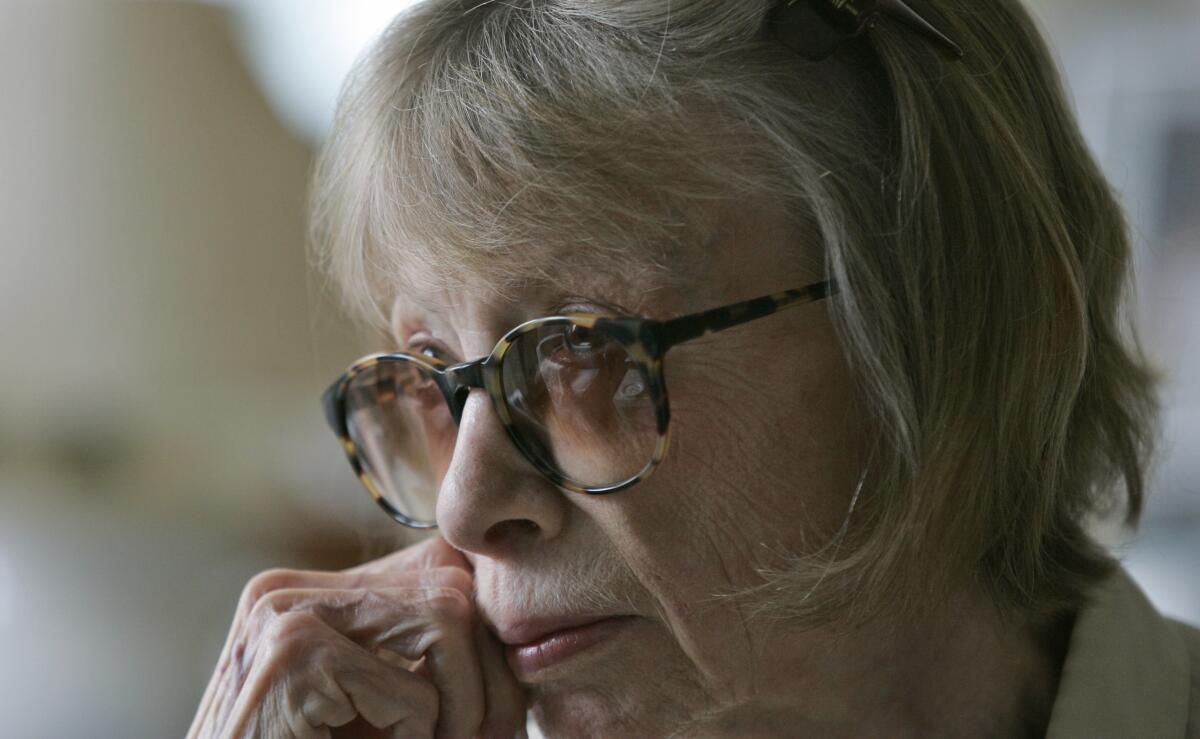Letters to the Editor: Joan Didion’s advice to a grieving widow: ‘Now you take care of yourself’

- Share via
To the editor: In the fall of 2015, I attended Joan Didion’s book signing in Pasadena. Her book “The Year of Magical Thinking” spoke to the grief that I was experiencing after my husband’s passing the previous December. (“Joan Didion, masterful essayist, novelist and screenwriter, dies at 87,” Dec. 23)
After waiting in line for her to sign my book, I thanked her, explaining that her words were my thoughts after losing my husband. After signing the book, she handed it back, reaching out to hold both my hands. Her words that night provided me with comfort: “Now you take care of yourself.”
Didion may have been a great observer of life, but that night she embraced my life, and I felt a new confidence in moving forward. Thank you, Joan.
Linda Angel, Pasadena
..
To the editor: Though I met Didion only once, and briefly at that, I crossed paths with her through her work at pivotal times.
As a lad of just 23 years, I was hired to the production team of “Play It As It Lays,” the 1972 film version of Didion’s novel. I had never heard of the much-acclaimed Didion before, much less read anything she wrote.
We were shooting a scene one morning in West Hollywood when the assistant director whispered in my ear, “Meet Joan Didion.” I turned and there she was, a tiny sparrow of a woman, with large eyes that took everything in. I was introduced to her, she nodded gravely, and that was that.
A year later I met my future wife, who considered Didion to be one of the great writers of our time (“love me, love Didion” was her motto). Only then did I begin reading her. I admired her writing but couldn’t fully let it in.
Forty-six years later, my wife died, and I read “The Year of Magical Thinking.” Only then did her sublime observation of the human experience penetrate deeply. Through her unflinching examination of her own profound grief in having lost her husband, Didion became my guide.
Walter Dominguez, Los Angeles
..
To the editor: Why did Didion leave Sacramento in her teens and detach herself almost completely from her hometown? This seems to be the case with so many writers. (“How Joan Didion’s Sacramento childhood shaped her life, and her take on California,” Dec. 23)
Philip Roth wrote lovingly about his birthplace — Newark, N.J. — in just about every book he wrote, yet as an adult he never returned for long. Thomas Wolfe left Asheville, N.C., at age 15 and hadn’t visited for many years when he returned a year before his death at age 37. Ernest Hemingway was born in Oak Park, Ill., a suburb of Chicago, and avoided both cities for the rest of his life.
Why is it so difficult to go back? Maybe because it will never again be the same place in which one grew up; so much will have changed. Why not remember things as they were?
Perhaps that was what Didion was thinking.
Marcia Kahan Rosenthal, Santa Monica





